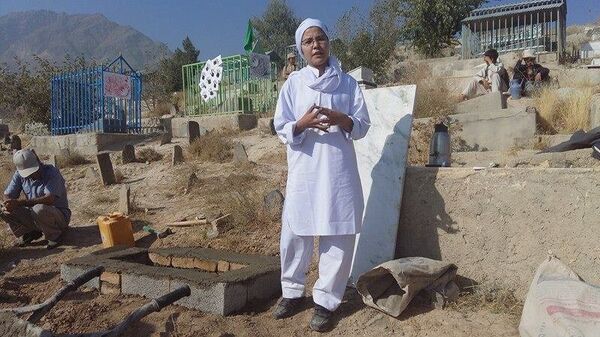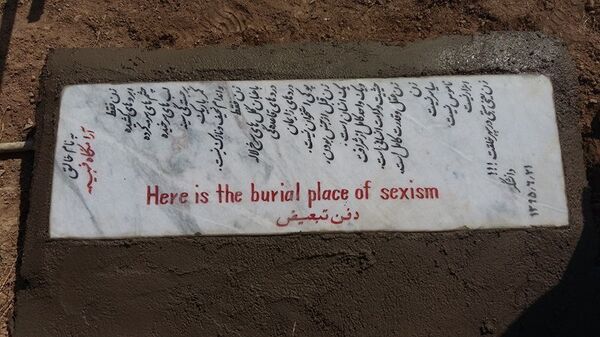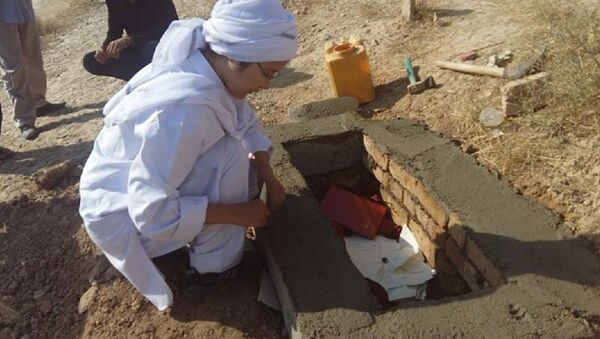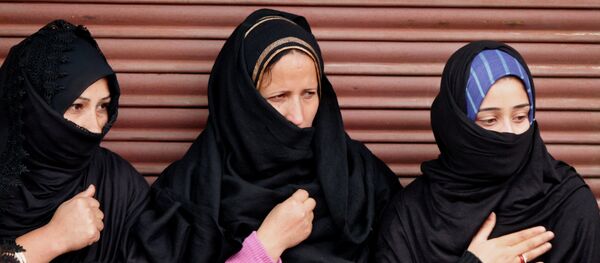Although her "suicide" was a symbolic, not actually real, Fahima carried out serious preparations for the ceremony to be as traditional, as possible.
She chose the headstone, let the date of her symbolic death be engraved on it and sent out invitation cards to her close friends.
"Everyone should be met not by sex, but by his or her personality," Fahima said in an interview with Sputnik. "I have always been proud of the fact that I was a woman, but I could never accept the fact that in Afghanistan, there is a division in the first, the privileged, sex, and the second, remaining in its shadow."

"I suffered very much because of this. How can I endure the fact that I want to be a human, but am not recognized as such just because I am a woman?! Of course, my sex will never change. I don't despise women, I am just burying my memories of life in a woman's appearance," the young woman explained.
Fahima also said that she buried the memories of her past life, including diaries, as well as her sexual identity in the Kabul cemetery.

The burial is supposed to be a monument to "a female Fahima" and all of her compatriots who have suffered sex discrimination in their homeland.
From now on, the now 20-year old Fahima decided to take the name "Danishgar," which in Afghanistan could be both female and male.



